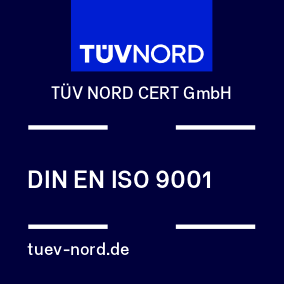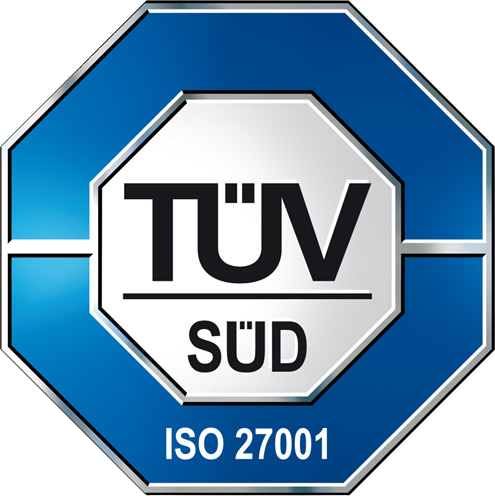Main content:
Updates
January 19, 2026: The Patent Mediation and Arbitration Center (PMAC) launches its website https://www.pmac-upc.org/en.
January 14, 2026: A hearing of the local UPC chamber in Vienna is taking place for the first time at its new location in the Austrian Patent Office. The hearing was conducted in English.
November 4, 2025: The Administrative Committee of the UPC decided to amend the fee structure of the UPC by taking into account the inflation as well as lessons learned about the actual effort of various court actions. Thus, some new fees have been introduced while others have been further increased. The new table of court fees can be found here.
October 17, 2025: Mr. Klaus Grabinski and Ms. Florence Butin have both been reelected as Presidents of the UPC Court of Appeal and of the Court of First Instance respectively. Their term will end on October 31, 2028.
September 24, 2025 UPC: the eagerly awaited new Case Management System (CMS) is finally available ( www.unifiedpatentcourt.org/en/news/new-cms-unified-patent-court-now-live )
July 31,2025: UPC announces new address for its webpage: https://www.unifiedpatentcourt.org
July 29, 2025; The Administrative Committee of the UPC approves selection criteria and a codex of behaviour for arbitrators and mediators of the Patent Mediation and Arbitration Center (PMAC).
May 7, 2025: UPC publishes its case-load statistics since the start of the UPC.started. A steadily increasing work-load is observed: https://www.unified-patent-court.org/en/news/case-load-court-start-operation-june-2023-update-30-april-2025
April 4, 2025: EPA Vice-president Christoph Ernst at a meeting with patent attorneys confirms that actually more than 53.000 request for unitary effect have been filed. The simplification and cost reduction caused by the unitary patent is regarded with favor by the attorneys.
April 1, 2025: EPO publishes this year´s update of its unitary patent guidelines:https://www.epo.org/en/legal/guidelines-up/2025/index.html
March 25, 2025: EPO publishes the 2024 patent index: like in the year before the demand for the unitary patent outperforms expectations. We see more than 28.000 requests for unitary effect, 25.6% of all European patent applications.
February 14, 2025: At the same day the UPC publishes its first annual report: https://www.epo.org/en/service-support/faq/law-practice/unitary-patent/costs-unitary-patent-and-reductions-small-3
February 14, 2025: The Administrative Council in its 14th session among other things approves the employment of additional judges. This is a reaction to the faster than expected increase of UPC´s workload.
The six most important questions about the Unitary patent
- How can I get a unitary patent?
Unitary patents are granted since June 1, 2023. Apply at EPO for a ´ordinary´ European Patent, designate all countries (potentially) eligible for the Unitary Patent and file a request for unitary effect (free of charge). - How much will the unitary patent cost?
A unitary patent will cost around € 7,400 on average for the first ten years. Instead of one fee for each country in which patent protection is sought, there is only one fee for the unitary patent for all participating states. For comparison: if inventors only protect their invention in four countries it is more than 10.000 €. The unitary patent provides protection in 18 countries for an even smaller amount of money. For further information see https://www.epo.org/en/applying/european/unitary/unitary-patent/cost - Is the whole EU involved in the unitary patent?
Currently 18 countries are participating: Austria, Belgium, Bulgaria, Denmark, Estonia, Finland, France, Germany, Italy, Latvia, Lithuania, Luxembourg, Malta, the Netherlands, Portugal, Romania, Slovenia and Sweden. The unitary patent applies in these countries. When fully developed, there can be up to 24 member states. - Into which languages has the unitary patent to be translated?
Like the previous European bundle patent, the unitary patent can be registered in German, English or French. During a transitional period of twelve years, all unitary patents must be translated into English or another official language of the EU. After that, you only register in one official language of the EU and no further translation is necessary. - How to get a unitary patent?
The unitary must be registered with the European Patent Office and will then be granted by the European Patent Office. - What support do companies and researchers who want to register a unitary patent get from the Austrian Patent Office?
The best way to get protection starts with a professional search at the Austrian Patent Office. You get a professional assessment of whether your invention is new and patentable. The Patent Office advises and accompanies SMEs, startups and researchers in order to provide them with a safe path to internationalization.
More questions?
The advantages
The unitary patent is intended to bring advantages to inventors and companies: You can protect your innovations with a single patent in several countries at the same time and save a lot of paper, time and money. Above all, the otherwise very time-consuming translation into the national languages is no longer necessary. The Unitary Patent can be applied for in German, English or French. The effort of translating in the conventional process should not be underestimated. And instead of one fee per country, only one fee is charged for all participating states. The annual fee is comparable to a four-country fee and currently offers protection for 18 countries.
Note! The unitary patent is not a walk in the park.
Despite all the advantages and the simple registration, there are some things to consider. If the patent is not granted, for example, the entire procedural fees are lost, just as with the bundle patent. A risk that can be minimized in advance with a professional search by the Austrian Patent Office. Such a research is available for € 282 (online application € 262) and will be completed within a few months. Even better: With a national patent or utility model application, you also get this search and at the same time secure the priority date. Applicants should therefore go to the Austrian Patent Office first and only then apply for the unitary patent.
The new granting procedure works according to the principle "One for all, all for one". If the patent is granted, it is valid in all participating countries. But if it is successfully challenged in one of the countries, then it also loses its effect in all other countries. Depending on the technical subject matter, the challenge is heard before one of the central chambers in Paris or Munich or Milano.
The infringement of a unitary patent is also heard before local chambers. That can be in Stockholm, Milan or Vienna, to name just three examples. The Court of Appeal (second instance of the UPC) is based in Luxembourg.

